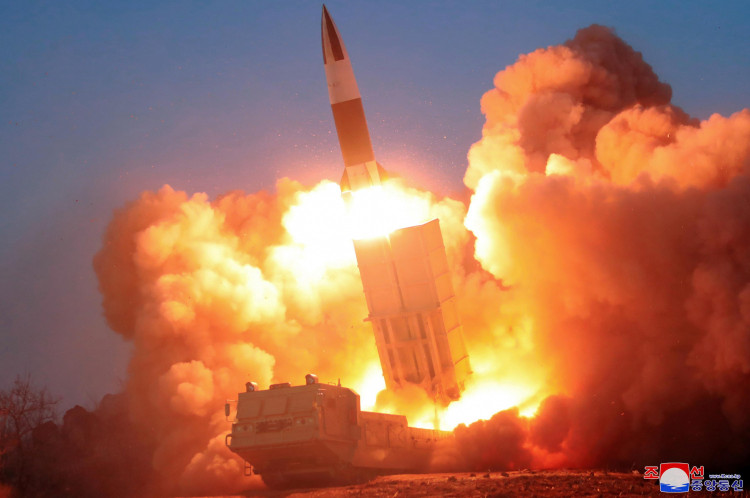In a sharp escalation of tensions on the Korean peninsula, North Korea has unleashed a barrage of more than 200 artillery shells towards the South's Yeonpyeong Island, prompting immediate evacuation orders and a heightened state of alert. The South Korean military confirmed the attack, which occurred off its west coast, as an unprovoked act of aggression that significantly raises the risk of broader regional instability.
Local reports from South Korea indicated that the shells, fired between 09:00 to 11:00 local time, landed in the buffer zone between the two nations, avoiding direct hits on South Korean territory. Nevertheless, the South Korean Joint Chiefs of Staff labeled the incident as a "provocative act" that threatens peace and elevates tensions on the peninsula. The shelling follows ominous warnings from Pyongyang about bolstering its military arsenal in anticipation of war, which it claims could "break out at any time."
In response to the North's aggression, South Korea ordered civilians on Yeonpyeong and nearby islands to move to shelters. South Korean Defense Minister Shin Won-sik issued a stern statement, declaring, "Our military must assume the readiness to completely wipe out the enemy so that they wouldn't dare another provocation." The minister's words underscore the severe nature of the incident and the South's commitment to defending its sovereignty.
The artillery fire has drawn international attention, with many viewing it as a deliberate attempt by North Korea to test the South's resolve and the international community's response. The attack also comes months after North Korea fully suspended a military deal with the South aimed at reducing tensions and improving relations. Since then, Pyongyang has declared its withdrawal from all measures taken to prevent military conflict, indicating a significant hardening of its stance.
Authorities on Yeonpyeong Island, a small civilian population center and home to a military base, have been put on high alert. The island's proximity to the disputed maritime border in the Yellow Sea and just 12km from the North Korean coast makes it a flashpoint for inter-Korean naval clashes. The memory of the 2010 bombardment by North Korea, which killed four people, still looms large over the island's residents and the South Korean military.
The international community watches closely as the situation unfolds, with many urging restraint and diplomatic engagement to de-escalate tensions. The recent artillery fire not only disrupts the relative peace that has prevailed in the region but also raises questions about the future of inter-Korean relations and the stability of Northeast Asia. As both sides brace for potential further developments, the world hopes for a peaceful resolution to this dangerous and rapidly evolving situation.




